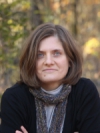Welcome

Trouble-shooting
Among the novel features of the festival this year is the Student Competition ZOOM IN. By presenting and discussing the works by the young generation of filmmakers, we would like to survey important new directions in documentary cinema as well as stimulate an exchange of experiences. The student films will be evaluated by a Jury made up of internationally renowned film professionals, whose feedback will be of additional value to the participants. Verzio Student Jury, selected on a competitive basis, will award the Best Human Rights Film Award at Verzio. We are happy to welcome the Nuremberg International Human Rights Film Festival as our guest this year that will present a variety of cinematic approaches to telling powerful stories of the past and present. A selection of award-winning films in our joint program highlights the diversity of human rights issues from the traumatic European past (Every Face Has a Name, My Mother , A War and Me) to exploring the anti-corruption campaign in Guatemala (The Burden of Peace) and anti-globalist resistance in Burkina Faso (The Siren of Faso Fani). In addition to the screenings, the exhibition, Frozen Conflicts by the Belgian photographer David Verberckt, explores post-Soviet spaces marked by memories of recent wars, for a visual expression of the lasting traumas of violent social and ethnic conflicts. While the program abounds with films touching on dramatic issues, it aims at sending the message of hope and empowerment, which is most compellingly expressed in the festival's closing film, How to Change the World. Tracing the emergence of the largest environmental organization that was originally powered by a small group of like-minded enthusiasts shows that the world is not ruled by supra-human powers, but can be changed by those with motivation and a strong vision. Inviting you to face the world full of injustices and conflicts, Verzio calls you to watch, talk, and act in order to make your vision of a more human future come true. Have a good festival! Oksana Sarkisova |

On Dignity
In 2004 the very first Verzio Film Festival was opened by a man who inspired us for decades with his life, words, and deeds: Árpád Göncz (1922 –2015), Hungary’s first democratically elected head of state. Twenty years ago he said the following: We cannot, however, make concessions where the protection of those whose human rights are violated is at stake. There is no external advantage for which we can abandon our fellow human beings. When human dignity is denied we must protest with all our strength. For we cannot bear the violation of the human dignity of others; and it harms our own dignity if we could have done something but had reconciled with the intolerable. We must protest so that a rights violation counts as a violation. So that it is understood: we have human rights. We consider it our duty to make Árpád Göncz’s legacy resonate with future generations. Verzio wants to be the voice that counts. The voice that shouts violation, the mirror that shows the “flickering truth”, the eye that sees human dignity –be it in a dusty film reel, a forbidden song, a quiet conversation or a refugee love story. Anikó Kövecsi |





